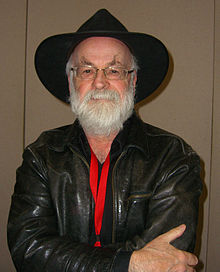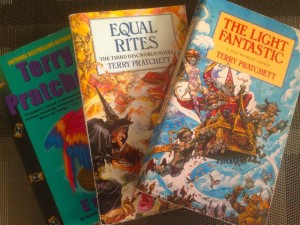Author Archives: davestukasscifiauthor
Great Podcasts: The Infinite Monkey Cage
Graffiti: The funny writing’s on the wall
Great bookstores: The Last Bookstore, Los Angeles
Located in the the first two stories of an old bank space in downtown Los Angeles, The Last Bookstore isn’t just a place to pick up a classic or the latest best seller. Continue reading
The message
Do superheroes wear underwear?

I bought some Calvin Klein Intense Power underwear and put them on one morning. I smiled when I admired them in a mirror. I would have the power of a superhero. Continue reading
Cary Grant, meet C-3PO: Darth by Darthwest
The 100-year-old man who climbed out the window and disappeared is like Forrest Gump with explosives
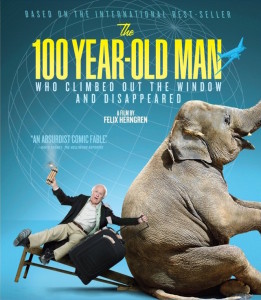 I have a new favorite absurdist movie: The Man Who Climbed Out the Window and Disappeared. This Swedish farce, adapted from the book by Jonas Jonasson, was a huge hit in its home country, then proceeded to take the rest of Europe by storm.
I have a new favorite absurdist movie: The Man Who Climbed Out the Window and Disappeared. This Swedish farce, adapted from the book by Jonas Jonasson, was a huge hit in its home country, then proceeded to take the rest of Europe by storm.
David Bowie gets his own constellation in the heavens
https://www.youtube.com/watch?v=Tgcc5V9Hu3g
At the moment of his death, Belgian astronomers registered a lightning-bolt-shaped constellation of stars for David Bowie, in honor of the iconic photograph of him as Ziggy Stardust on his Aladdin Sane album. I’ve always suspected that he was a hyperintelligent extraterrestrial. There’s no other way to explain his phenomenal talent.
Great science-fiction films: Ex Machina
Great science fiction and fantasy authors: Terry Pratchett
Terry Pratchett is the best-selling fantasy author many people have never heard of. By the time he died in 2015, he had sold over 85 million books (based mostly on his Discworld series), and until JK Rowling rolled around, he was the best-selling author in Britain. Including his last book, The Shepherd’s Crown, he published over 41 Discworld books. Not to mention dozens of others in different genres and subgenres.
So who was this guy?
First, he wrote fantasy books. With a comic twist.
Now before some of you start groaning, these fantasy characters aren’t like anything you’ve ever read. First of all, they’re funny. There are dwarfs six feet high, vampires who’ve taken a pledge not to drink blood, and a witch who hates riding brooms.
Secondly, they have real depth. They come alive. They have idiosyncrasies and flaws, but what makes them so endearing is that we can see ourselves in them. They’re us. Granted, they’re us if we lived on a flat world supported by four elephants standing on an enormous tortoise that soars through the cosmos.
And they’re likable, including Death, which became one of his most beloved characters.
Are you still with me?
It’s not just the characters that draw fans to his series. In each novel, he managed to slip in some wry social commentary, allowing us to see our world reflected in his.
In Thud!, he draws attention to racial prejudices, taking aim at those who fan the flames of hatred against particular groups. In Equal Rites, he makes a case for equal opportunities for women way back in 1978. And in Small Gods, he has something to say about the misuse of religion for political (or personal) gains.
Besides everything mentioned above, few authors could mix science and fantasy with such flair. Of course on Discworld, science became magic. Tiny ants build sugar pyramids to their dead queen under the flagstones of the Unseen University. Magic causes light to slow down and take its time crossing Discworld, sometimes piling up at the foot of mountain ranges. Tantric sex magic books have to be stored under cold water to keep them from bursting into flames and “scorching their severely plain covers.” And of course, few can coin a phrase like him. In the bad parts of town in Ankh-Morpork, he has “ladies of negotiable affection” working the street.
These are not just silly, harmless fantasy romps. They make us think. And wonder. And laugh. All at the same time.
That’s an amazing legacy to leave behind.
(Postscript: The author himself, in his biographic-essay collection A Slip of the Keyboard suggests beginning Discworld readers not start with his first two books, The Color of Magic and The Light Fantastic. True, as time went on, Mr. Pratchett’s writing became more masterful and in some cases, darker, but his first two entries are awfully darn good. If you want to start a bit later in his series, I suggest Hogfather and Mort.)
Great Podcasts: Studio 360
I chanced on this great website while looking for, as usual, all things scientific. Besides great podcasts (the one that led me here was about parallel universes…a subject near and dear to a sci-fi writer’s heart), studio 360 has articles, videos and blogs about current music, books, movies, and other pop culture happenings with a good dose of comedy thrown in (another subject near and dear to my heart as a comedy writer). It’s kind of like an alter-ego to another podcast favorite, Radiolab. Best of all: it has a separate page for science and technology, containing for example, videos of Darth Trump, artists at CERN, and what dark matter would look like if you could draw it.
Enjoy.
Hey Dude, Your Use of Bernoulli’s Equation and Euler’s Equation for Streamline Curvature Effect is Really Rad
Human ingenuity will never cease to amaze me. And neither will the way that science makes its way into nearly every facet of our daily lives.
Especially when it comes to extreme sports. In fact, from wingsuit base jumping to ice climbing, these unbelievable sports wouldn’t exist without making use of scientific principles.
Take what I’ve been seeing more and more off the coast of California in the last year.
Kite surfing is nothing new. You combine a huge inflatable, curved kite and a short surfboard and you go sailing across the top of the water.
At some point, someone must have said to themselves: “This is really great, but I want to go faster. And I want to take advantage of really windy days, but not put up with the choppy surf that high winds create.
Someone, somewhere, must have seen—or ridden—on a hydrofoil boat and noticed that it provides a smooth ride even on choppy seas, it cruises much faster, and turns quicker.
Some smart person attached a hydrofoil to a surfboard and a new sport was born. It makes you do a double take, watching a person sailing three or four feet above the water.
Amazing.
So what’s next?
Once we humans make traveling into space an everyday thing, it wouldn’t be out of the question to see someone whizzing by at a million miles an hour on solar wind sail.
And after that? It’s anyone’s guess. Black hole base jumping? Pulsar catapults?
(If you’re really interesting in the principle of using foils to lift a boat, here’s what MIT says about it: hydrofoils
Let’s Get Serious About Being Funny
I’m a comic writer. I write funny things. Books, essays, tweets and short videos. Mostly because I like to laugh. And I like to get laughs. It makes me feel like I’ve made the world a nicer place to live. Just a teensy bit.
There’s a second, but equally important reason I write things that are funny: I can’t help it. It’s my way of coping with the fact that I just can’t make sense of this planet. The people on it. The funny, bizarre and sometimes cruel things they do to each other. Even the way the universe is constructed. Bosons, leptons, quarks, gravitons, dark energy, dark matter, black holes, white holes, parallel universes, sheesh! The universe seems not only to be run by a bunch of maniacs, to quote sci-fi great Douglas Adams, but designed by one as well. It’s all wildly, entertainingly, hysterically insane. Making fun of it all seems like a natural.
I suppose I could make a placard and march up and down the street, screaming my dissatisfaction with the way things are. Or break some store windows or throw Molotov Cocktails into businesses along Sunset Boulevard.
I’m just not the violent type.
So instead of getting nihilistic, angry or bewildered about it all, I take another tack. I draw attention to whatever craziness I see by exposing it with exaggeration and humor. It’s called satire.
The problem is that most people don’t take comedy seriously. They hear the joke, utter a quick laugh, and assume that’s the end of it.
Harmless.
No real lasting change, right? Only drama can do that.
The pen isn’t mightier than the sword, is it?
Comedy can be a powerful instrument for change, but we humans fail to see the subtle change in our thinking because we’re too busy laughing.
Consider this. Comedian John Cleese says that when people saw Beyond the Fringe, the early 1960s London comedy stage review, the audience screamed with laughter. “It was a liberation!” Decades of stuffy protocol dissolved in a matter of minutes. Indeed, until that point, comedians rarely made public fun of the Queen, the clergy, the Prime Minister or members of Parliament. Things started to change and it all started with humor.
Since I’m on the subject of British humor, take what I noticed while watching Monty Python and the Holy Grail recently. The scene: two peasants challenge King Arthur’s authority by flatly stating that they didn’t vote for him. Arthur counters by saying that a lady of the lake held forth a sacred sword, Excalibur, for him to carry, signifying his rule by divine right. The peasants still weren’t buying it. “Strange women lying in ponds distributing swords is no basis for a system of government.”
Ba-zing!
While I find this scene very funny, it’s also making a very serious point about the insane methods royalty used to justify their power. Divine right is up there at the top of crazy thinking, but it has plenty of company with prophesies, omens, bloodlines or familial assassinations.
So am I advocating that this scene is going to make people in the Middle East or Southeast Asia rise up and overthrow their ridiculous monarchs or totalitarian regimes?
Hardly. But like a stone dropped into a pond, the ripples fan out, causing waves on the shore. Little by little, splash by splash, the shoreline is changed. Watch a few episodes of Last Week Tonight with John Oliver, or Samantha Bee’s Full Frontal and you’ll understand how you can laugh and be angry at the same time.
In ending, I’d like to see comedies taken more seriously. To point, in the 86 years that the Academy Awards have been given out, only six Best Picture awards have been given to pure comedies.* Just because the messages in a comedy come in on little cat feet, doesn’t mean they don’t have impact. It’s just that we lovers of really great comedy prefer our messages served up with a few good laughs.
*Dramadies not included in this figure.
I Saw Mommy Eating Santa Claus
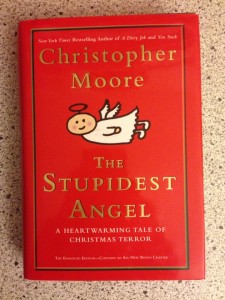 Now that the holidays are upon us, it’s time to deck the halls with boughs of holly and flesh-eating zombies. What better way to celebrate our annual bout of family dysfunction and commercial overconsumption than by reading a comedic tale of a coastal California town overrun by zombies brought to life by an inept angel. Throw in a C-grade movie star, a pot-smoking town sheriff and a repulsive Santa who takes a fatal shovel to the face and you have a heart-warming tale the whole family can enjoy. Brought to you by one of the funniest comic authors around: Christopher Moore. So buy it and curl up next to the fire with this very funny book. Just keep a shotgun by your side. Ho ho ho.
Now that the holidays are upon us, it’s time to deck the halls with boughs of holly and flesh-eating zombies. What better way to celebrate our annual bout of family dysfunction and commercial overconsumption than by reading a comedic tale of a coastal California town overrun by zombies brought to life by an inept angel. Throw in a C-grade movie star, a pot-smoking town sheriff and a repulsive Santa who takes a fatal shovel to the face and you have a heart-warming tale the whole family can enjoy. Brought to you by one of the funniest comic authors around: Christopher Moore. So buy it and curl up next to the fire with this very funny book. Just keep a shotgun by your side. Ho ho ho.
Einstein Was a Loser
 Those aren’t my words about the great theoretical physicist. They’re his.
Those aren’t my words about the great theoretical physicist. They’re his.
Unable to find work after graduating from the Zürich Polytechnic with a teaching diploma, he wrote to his sister and said that it would have been better had he never been born.
Can you imagine?
The job he eventually got as a lowly clerk at the patent office in Bern gave him what he really needed besides a paycheck: time to think. He put his time there to good use, indulging in his thought experiments, and writing the three papers that changed how we understand the universe. Even after these papers were published, they weren’t universally accepted. It took time. Many years, in fact.
The key thing was, he never gave up.
For those of you still waiting tables or tending bar or working retail, hang in there. If you have talent, the only other thing you need is a belief in yourself. And a little patience.
Watch Your Favorite Actors Explode!
Or your favorite Disney character.
Judy Garland, Audrey Hepburn, Julia Roberts, Johnny Depp–all of them explode for a few yuks. I get a kick every time I watch these videos, dreamed up by this guy in Italy. Comedy at its most sledge-hammering best.
Download the Classics for Free. Legally.


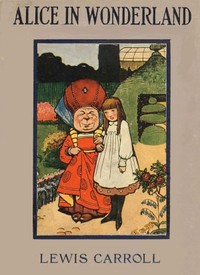 This one of the greatest bargains in the world.
This one of the greatest bargains in the world.
Project Gutenberg is a website that allows you to download classic works of literature for free as an ebook. Download them or read them online.
They have close to 50,000 titles, published, as they state, by bona fide publishers, carefully proofread and digitized, many with original illustrations.
Choose from Moby Dick, Tale of Two Cities, The Picture of Dorian Gray, Dracula, Ulysses (Jame Joyce), The Iliad (Homer), The Adventures of Sherlock Holmes, Alice in Wonderland, Pride and Prejudice…even The Prince, by Machiavelli.
And while you’re downloading great works of literature, make a small donation to their cause while you’re at it.
Here’s the Gutenberg link.
The Long Journey for The Martian
 The Martian by Andy Weir is a great story.
The Martian by Andy Weir is a great story.
I haven’t read it, however.
I’m sure the plot is thrilling, but what fascinates me is the other story here: how the book became a book. Then a movie.
It goes pretty much like this:
The author, Andy Weir, wrote the science fiction novel about an astronaut stranded on Mars, waiting for a rescue that will take four years. It’s all about survival.
He originally posted the book, chapter by chapter on his no-frills website. His loyal followers were clamoring for somewhere on the Internet where they could download the whole thing in Kindle for free.
It turned out, there was such a place: Amazon e-books for self-published authors. It’s called Kindle Direct Publishing. But it wasn’t free. Amazon, required authors to charge a minimum of 99 cents, with Amazon getting 64 pennies per book, and him receiving 35.
He posted the book on Amazon for 99¢ and a miracle happened. Sales started slowly, but they soon climbed. Then took off. Within seven months, over 35,000 copies had been downloaded, even though the book was still available for free on his website (which required a little technical know-how to download it).
Throughout all this, he tried to get a literary agent, but no one would touch his novel. He approached publishers, too. No one was interested. He tried for three years.
A publisher, seeing the success of the book online, approached him and asked if he had an agent. When he said no, they suggested one. A short time later, he signed with agent David Fugate. Within four days, he was approached by a movie studio who wanted to option it. The movie premiered in October 2015, with Matt Damon starring and Ridley Scott as director. The rest is history.
Andy Weir writes full time, now.
He wasn’t the first author to take this self-published path to success. Author Hugh Howey did the same with his science fiction Wool series. Fifty Shades of Grey author E. L. James started on her own. Beatrix Potter self-published, too, with her Peter Rabbit books way back in 1901.
The moral of the story here isn’t that literary agents and publishers often can’t see a gold mine when it’s staring them right in the face. Or that the traditional path to getting a book in front of readers has being overturned.
It’s that these authors had an unshakeable belief in the tale they wanted to tell.
For me, that’s the real story.
Someone’s Going to Die and It Sure As Hell Isn’t Going to Be Me
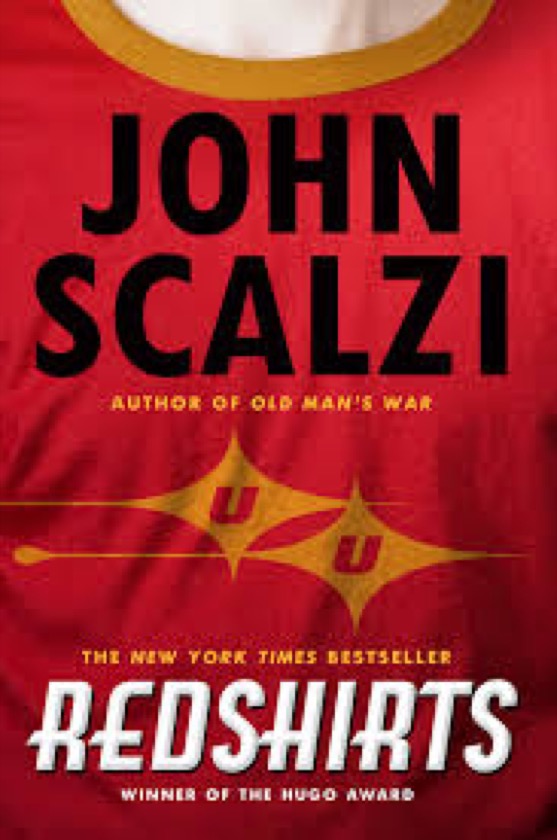 Being a science-fiction comedy author, I decided to read John Scalzi’s Redshirts. It’s a thinly veiled parody of the original Star Trek television series, told from the viewpoint of the lesser members on the starship Intrepid. The plot centers on the character of ensign Andrew Dahl, who uncovers a sinister reality: senior members of landing parties always survive extraterrestrial encounters while ship members of lower rank—wearing signature red shirts—die terrible deaths.
Being a science-fiction comedy author, I decided to read John Scalzi’s Redshirts. It’s a thinly veiled parody of the original Star Trek television series, told from the viewpoint of the lesser members on the starship Intrepid. The plot centers on the character of ensign Andrew Dahl, who uncovers a sinister reality: senior members of landing parties always survive extraterrestrial encounters while ship members of lower rank—wearing signature red shirts—die terrible deaths.
They’re disposable.
The story is about Dahl’s attempt to change the course of fate. It’s a comedy poking fun at the science-fiction conventions of the TV series.
I’m not going to get into reviewing Scalzi’s book. There are plenty of reviews online…go read some of those. My opinion isn’t all that important. Either you’ll either love it or not. Me, I enjoyed it.
But it was my reaction to the book that surprised me the most. A reaction that arose when I started watching the original episodes of Star Trek on Netflix. I hadn’t seen them in decades.
I got angry. And the more I watched, the angrier I became. As each episode enfolded, I got angrier about the callous, arrogant way Kirk, Spock and Dr. McCoy paraded around, smug in the knowledge that they would always survive. They had become assholes. Meanwhile, the innocent, underdog redshirts would be zapped, strangled, gassed, crushed, speared and incinerated, then tossed away after a poignant but short speech made by Captain Kirk.
It was like I was seven years old and someone had told me there was no Santa Claus. I sat there stunned. Here was a TV series that I had grown to love as a child, watching it with my dad in one of the few bonding rituals I had with him. And now, the series had turned on me. Deceived me. Tricked me. There was more going on than I had ever suspected.
I’m pretty sure this wasn’t the reaction John Scalzi wanted in his readers when he wrote this book. It was probably just great fun, showing things from a different viewpoint. I’m a comedic writer…I should know better.
But I can’t help it. I still haven’t forgiven my parents for lying to me about the fat, jolly man who supposedly lived at the North Pole.
The lie was fun while it lasted, though.






